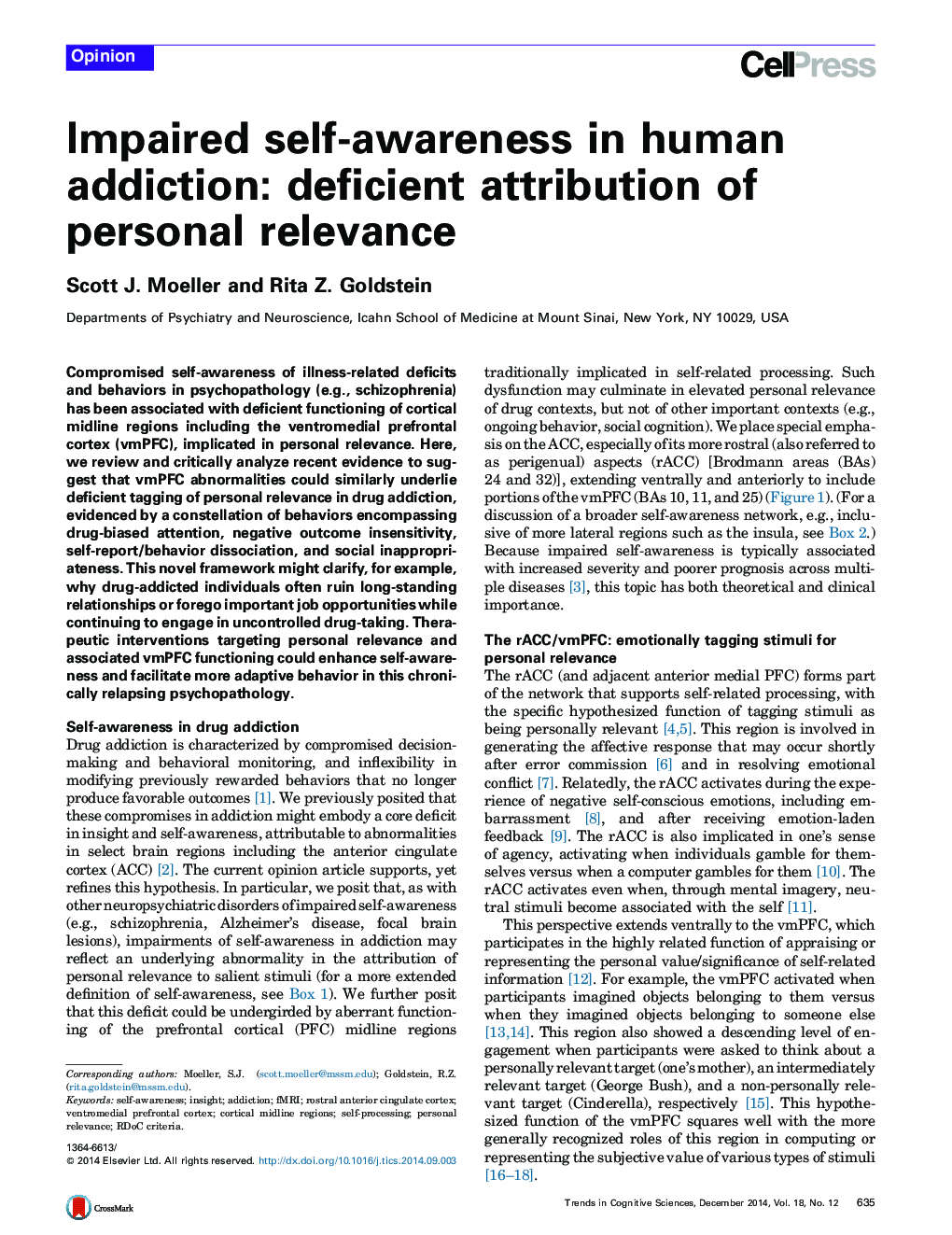| Article ID | Journal | Published Year | Pages | File Type |
|---|---|---|---|---|
| 141434 | Trends in Cognitive Sciences | 2014 | 7 Pages |
•Compromised self-awareness predicts severe disease and poor prognosis.•We suggest similar self-awareness impairments in human drug addiction.•This deficit is traced to ventromedial prefrontal cortex (vmPFC) functioning.•Treatment approaches to target self-awareness and vmPFC functioning are raised.
Compromised self-awareness of illness-related deficits and behaviors in psychopathology (e.g., schizophrenia) has been associated with deficient functioning of cortical midline regions including the ventromedial prefrontal cortex (vmPFC), implicated in personal relevance. Here, we review and critically analyze recent evidence to suggest that vmPFC abnormalities could similarly underlie deficient tagging of personal relevance in drug addiction, evidenced by a constellation of behaviors encompassing drug-biased attention, negative outcome insensitivity, self-report/behavior dissociation, and social inappropriateness. This novel framework might clarify, for example, why drug-addicted individuals often ruin long-standing relationships or forego important job opportunities while continuing to engage in uncontrolled drug-taking. Therapeutic interventions targeting personal relevance and associated vmPFC functioning could enhance self-awareness and facilitate more adaptive behavior in this chronically relapsing psychopathology.
